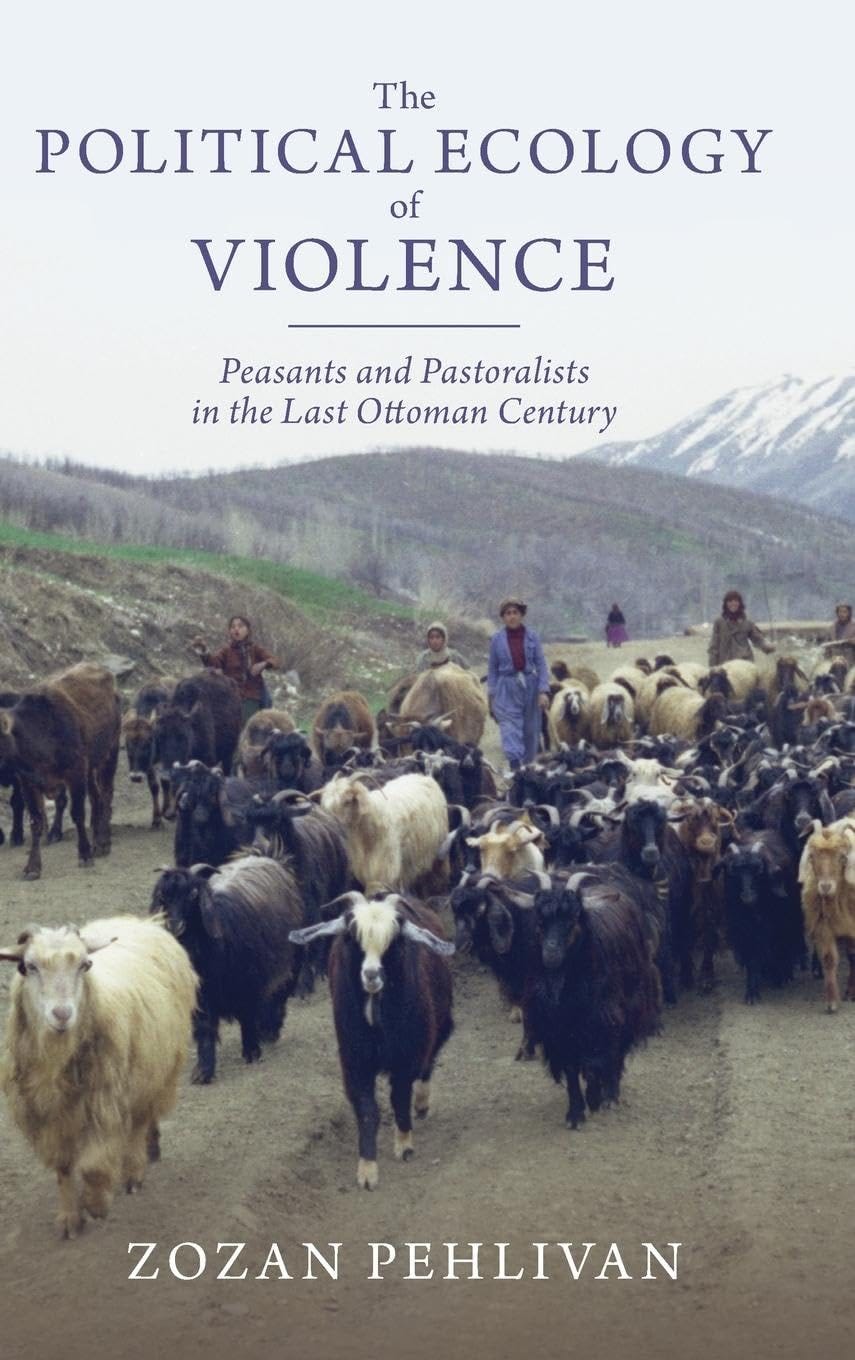Zozan Pehlivan on climatic shifts behind late Ottoman conflicts
Zozan Pehlivan on "The Political Ecology of Violence: Peasants and Pastoralists in the Last Ottoman Century" (Cambridge University Press)
Listen to Turkey Book Talk: Apple Podcasts / Spotify / PodBean / Stitcher / PlayerFM / Listen Notes
You grew up in a rural part of the region, so did your interest in the subject come from that personal background?
The idea of the research actually emerged while I was doing the archival research for my dissertation project in 2011. I was doing research to study the inter-regional economy between Ottoman Iraq, Syria and Kurdistan, to situate how pastoral nomadic people integrated themselves into this economy, their function and their important role. Then while I was researching in the British archive at Kew, I realised the story was actually more about environmental crises. Every file and every source I was reading was about drought, famine, starvation, conflict, and so on and so forth. This allowed me to articulate new research questions. I changed from an economic historian to an environmental historian in the archive.
As I articulated in the historical ethnography part of my book, I grew up in this part of the world, in a small rural village. That allowed me to articulate a deeper understanding of the historical documents I was reading, interpreting them using the geographic and ethnographic knowledge that comes from my personal history. This helped me articulate a better understanding of regions, geography, ecology, landscape and how millions of people adapted themselves to the very diverse range of landscapes of Ottoman Kurdistan.
What were the broad outlines of the region's rural economy in the 19th century, specifically related to the Kurdish and Armenian communities. Is it right to say that broadly the Kurdish community was pastoral nomadic, whereas Armenians were typically more sedentary, engaged in peasant agriculture farming?
In some ways that is correct. Kurdish pastoralists constitute a majority of the pastoral economy in the region. There were also Kurdish-speaking peasants across the region. The region's economy is based on three economic sectors: The agricultural economy, the herding economy, and a small portion in industry that is particularly based on the herding economy, through hides etc. The region's population is about 2.5 to 3 million people and about 60% of this population is agrarian, meaning peasants. Armenian-speaking people constitute a large portion of this. There are also Kurdish-speaking agrarian peasants in the region. But what makes this region very distinctive in terms of the division of labour, in terms of the economy, is that a majority of herders are Kurdish-speaking pastoralists. They contribute to the region through the livestock trade by providing raw materials that eventually go to the industrial sector. They are the main wool producers of the region. They also export enormous amounts of livestock to Ottoman Egypt, Syria, Damascus, Aleppo and Constantinople throughout the 19th century.
In the mid-19th century, the amount of income that comes from animal husbandry - just through the livestock trade - is about £300,000. The value of that money in today's financial terms is about £30m. That is a large amount. The way the system functioned is that Kurdish pastoralists had very strong trade networks with traders in Egypt, Aleppo and Damascus. Armenian merchants were intermediators and also involved in livestock trade. They were the entrepreneurs of the region. So this economy was based on very strong interdependency between these different economic actors. This interdependency is the backbone of the regional economy in the mid-19th century.
Keep reading with a 7-day free trial
Subscribe to Turkey Book Talk to keep reading this post and get 7 days of free access to the full post archives.




